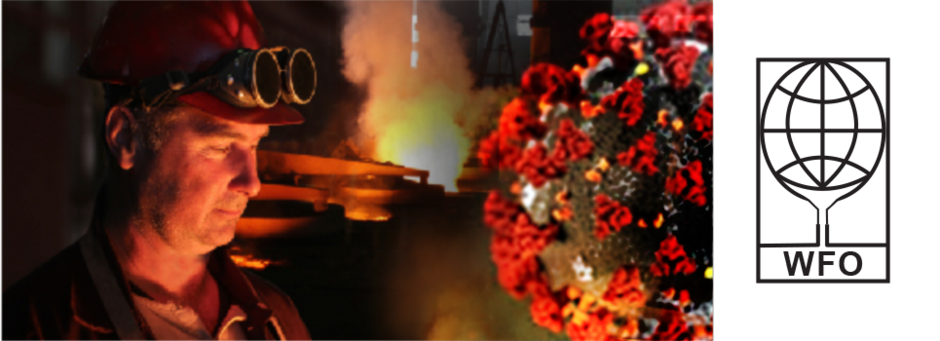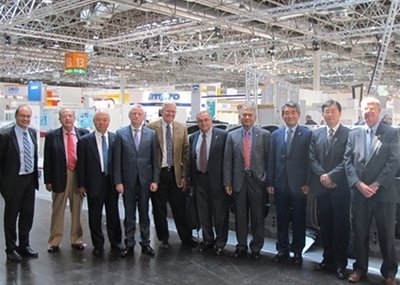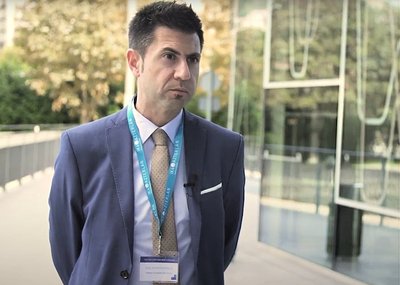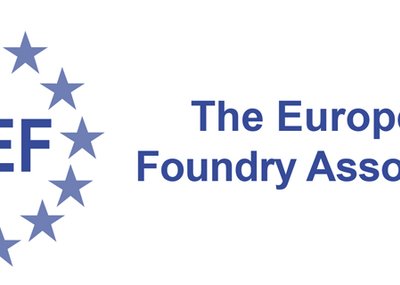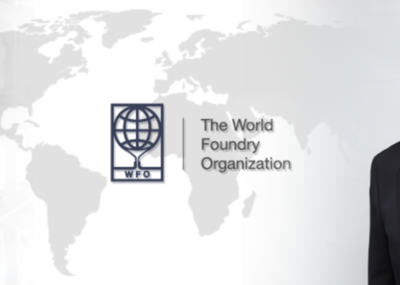The overriding effect is on the automotive sector and those foundries supplying this industry, with many reporting a reduction of up to 50% since the closing down of the major car makers. The impact has been particularly felt in USA, Japan and Germany, but also in other countries where the foundry industry is embedded in the automotive sector, such as Slovenia, Poland, Turkey and Mexico. The hardest hit country from our survey seems to be Korea, with a 50% decline in all orders, whilst in Indonesia, the effects are expected to be only a 10% reduction and the recovery to be within three months.
Workforce
Virtually every respondent reports significant reductions in workforce, partially to assist with social distancing rules but mostly due to the reduction in orders and current demand. On average this has been around 20%. Initially a number of foundries took extended vacation leave around the Easter period in April, to accommodate a reduction in orders, government ‘social distancing’ and lockdown’ guidelines, and to enable facilities to prepare for increased COVID-19 safety procedures. The latter involved altering production facilities to enable social distance working with new working practices, additional washing and cleaning facilities etc. New homeworking procedures have also been adopted in most countries for non-production staff.
Most countries have experienced some form of Governmental support, either through business tax reliefs, loans, grants, wage support for furloughed employees or support with energy. It is anticipated that this will ease the short-term issues associated with low order books and adopting new working practices to minimize the number of employees working together at the same time.
Ability to conduct business
Whilst preparation of facilities to enable further “safe working” conditions has been ongoing, WFO member associations report that one of the most significant concerns for the foundry sector has been the inability to travel, both within borders and internationally. Foundries and the supply industries have cited visiting existing and potential customers as an important part of their business. Thus, the travel restrictions have adversely affected their ability to market, sell and offer ‘hands-on’ technical support. There is concern that, with travel restrictions still in place, this could affect future growth potential.
This has also impacted delivery of goods and receipt of raw materials and supplies. A number of European countries reported issues with cross border deliveries and, where foundries had significant export commitments, this is causing additional concerns and complications.
The supply sector has expressed concern over the ability to access raw materials in the volumes required once foundry production starts to pick up. Some countries have indicated a need to modify global supply chains in the future to protect against shortages and extended delivery times.
Essential industries
It has been interesting to see the variation in Governmental identification of foundries as an essential part of the supply chain. Those working in the medical sector have witnessed significant and rapid increases in orders and have had to manage the need to accommodate this with increased capacity. Other essential goods industries have also seen increases in demand, these sectors include: those supplying paper products, energy production, agriculture, food production and distribution, cleaning and wastewater treatment. This has been in marked contrast to those supplying the automotive industry (which ceased trading for a period) and the oil and gas sector, the latter of which has been impacted by the dramatic drop in oil prices.
Conclusion and Future Outlook
Those foundries offering a wider range of castings have been able to spread the risk and have been less impacted than others. However, in general all in non-essential markets have been adversely affected with reductions in order books.
Many countries reported that investment plans and capital expenditure projects have been cancelled or delayed with medium term concerns about the post-COVID economy being the major reason.
The general consensus is that the recovery will be slow and prolonged, with many foundries citing six to nine months as the best estimate of recovery and then with potential reductions in the demand as recession hit economies influence the purchasing capacity of the population.
The other common response has been the uncertainty of the future related to the control of the virus, with no vaccine or cure yet to be found and the signs of some countries seeing a second spike in infection rates, despite the draconian and disruptive lockdowns. This means a general level of unease and uncertainty over when and how the overall markets will recover, leading to a pessimistic view of the short and medium term recovery.
There is a feeling that there will be closures and redundancies in some countries, whilst others may be better equipped to manage the reduction and new working practices.
Responding Countries: Australia, China, Croatia, Germany, Indonesia, Japan, Korea, Slovenia, Sweden, Turkey, United Kingdom and the USA

